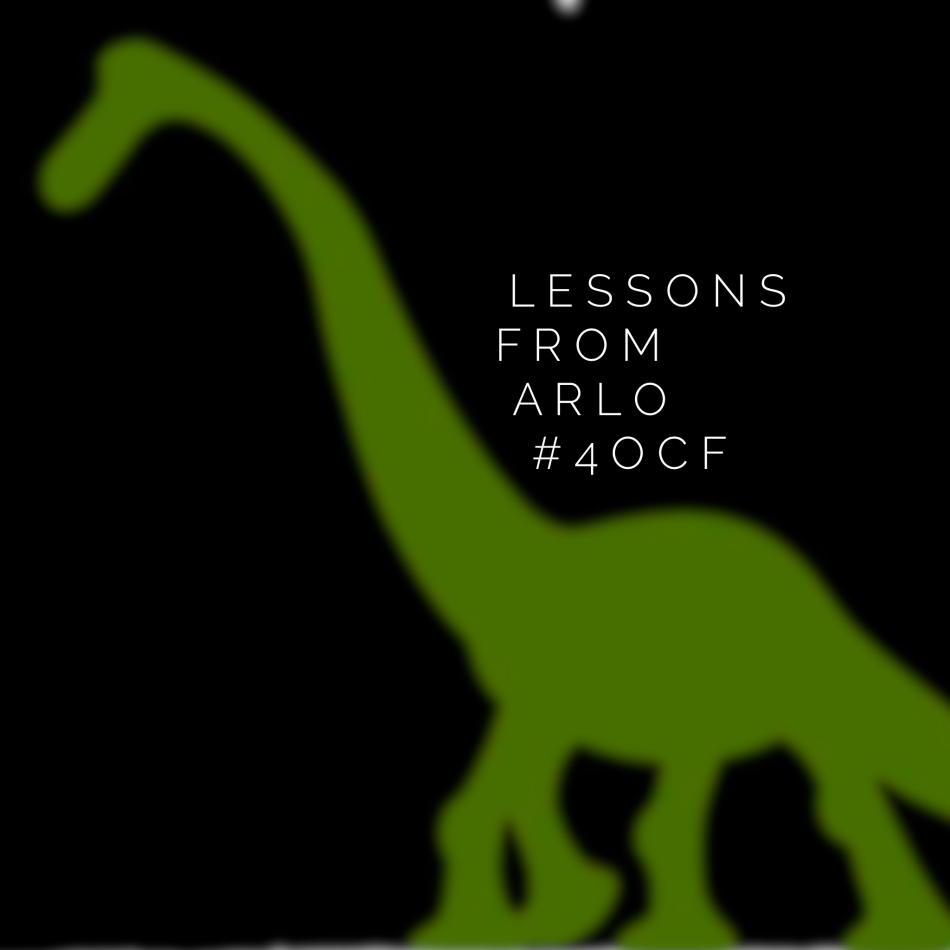SPOILER ALERT: If you have not seen Pixar’s The Good Dinosaur yet, you may want to choose another Four O’Clock Faculty post to check out.
Many of you know of my affinity for Pixar’s work. I finally had the opportunity to sit down with my children this weekend to watch Pixar’s The Good Dinosaur. Without providing too many spoilers, the movie features Arlo, an undersized apatosaurus, who goes on a journey, meets a friend named Spot, and finds himself in the process.
As with most Pixar projects, there were a lot of lessons to be learned, that can be applied in our classrooms:
Find yourself. In the movie, Arlo is thrust into a journey of survival, and must find his way home to his family. Throughout the journey, Arlo discovers strengths that he didn’t know he had. He was able to overcome a number of obstacles on the road home. In our classrooms, students will discover a lot about themselves when they are engaged in the learning process. Allowing students to engage in projects that they are passionate about, or to explore a number of different passions throughout the year will help students to find out who they are. Give students choice in exploring their passions or areas of interest. Students may discover something they didn’t know about themselves.
Overcome your fears. Arlo starts his journey as a meek dinosaur who is afraid of everything, even chickens! While discovering himself, Arlo must also face his fears, meet trials and tribulations head on, and come out as a better dinosaur, son, and friend in the end. When our students show fear in the classroom, we must help them to overcome it. Some students may have a fear of a certain subject, like math or reading. Some students may have a fear of speaking up in class. As the teacher, it is our job to find opportunities to help alleviate these fears. Help reluctant readers find books that they will love. Show students that they can be good at math with the right supports. Give students the opportunity to contribute in small groups before speaking in front of the whole group.
Complete your circle. Arlo and Spot communicate to each other by showing that they both have incomplete circles. The only way for the circles to be complete is for Arlo and Spot to help each other find their families. Create and complete the circle within your classroom. Focus on the class as a family unit, one that supports each other no matter what, that learns and grows together. Use class meetings to hold discussions, choosing “family” goals that affect the whole class. Model for students that caring for and supporting each other trumps individual success. Give students the opportunity to complete your class circle.
Make your mark. Arlo spends most of the movie trying to prove himself, and leave his mark alongside the marks of each of his family members. Arlo’s father tells him early on, “You can earn your mark by doing something bigger than yourself.” When Arlo saves Spot, he rightfully earns his mark. This is exactly what we should be challenging students in our classes and schools to do, to leave their mark. Show students that it is their actions that become their legacy. Ask them what kind of mark they would like to leave. Give students the opportunity to write for a global audience. Show students the power in helping others by infusing service learning into your classroom. Let students decide what contribution they will make to society. In fact, recreate a scene from the movie, allow students to make their “mark” in your classroom after they have done something beneficial for someone else. Promote positivity and helping others, and let students earn their mark.
I was happy to sit down with my children to watch the Good Dinosaur this weekend. I can only hope that my children take lessons from Arlo and Spot, and apply them to their own lives. Challenge your students to learn from Arlo and Spot, and to leave their mark on the world.
How will you challenge your students to live like Arlo and Spot this week? Share in the comments section below.
Rich (@RACzyz)


